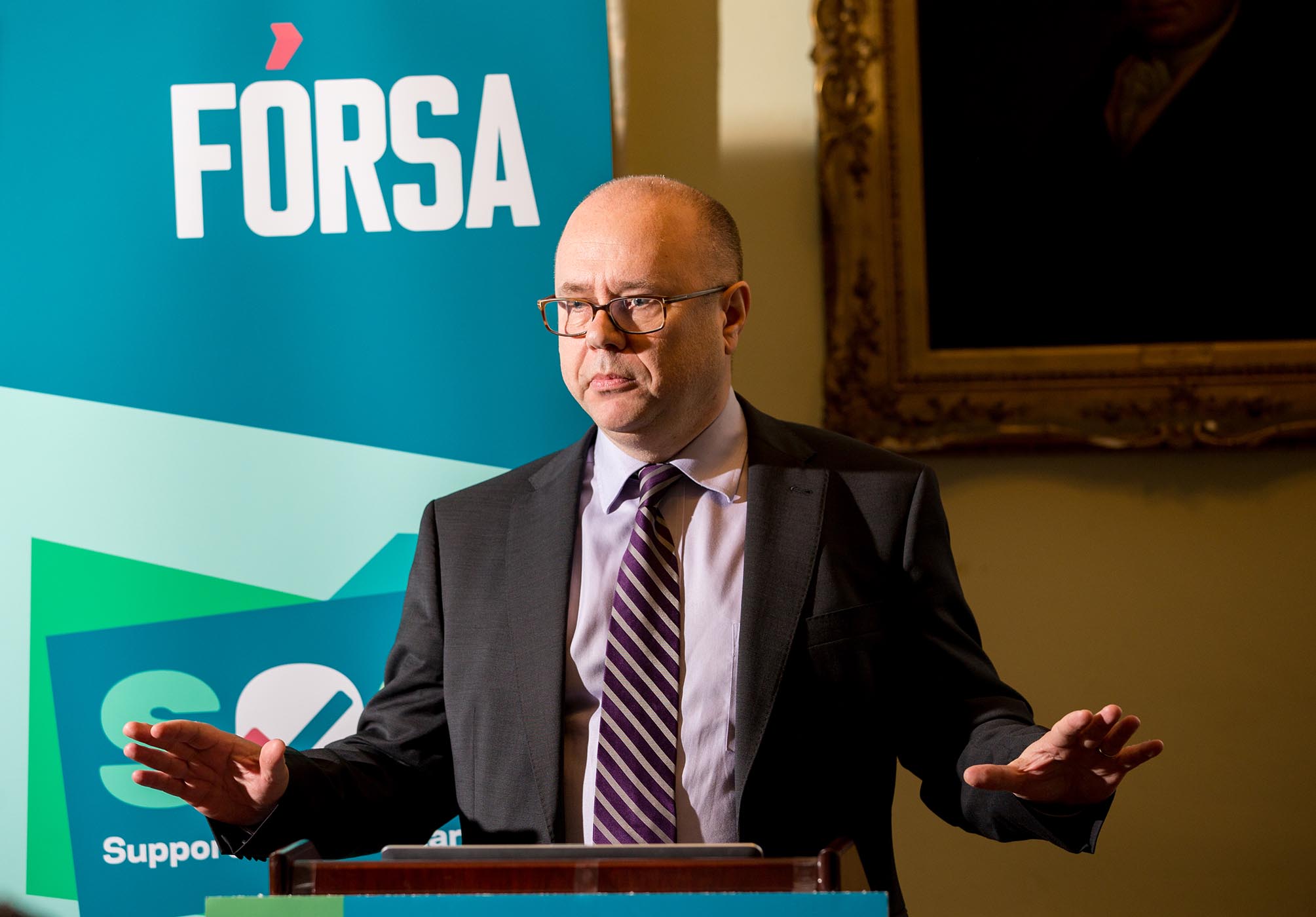The underlying assumptions of the Public Service Stability Agreement (PSSA) need to be reviewed to take account of lost spending power, recent and projected growth rates, and pay movements in the wider economy, according to the next Senior General Secretary of Fórsa.
Speaking at the annual Industrial Relations News (IRN) conference in Dublin today (Thursday), Kevin Callinan said public service agreements should also allow for individual grade claims to respond to enhanced responsibilities, higher qualification requirements, additional skills, and increased productivity.
Mr Callinan said: “The credibility of the current agreement [the PSSA] is being stretched by two important factors, which have taken took root over the past decade and which now need to be addressed. One is the spending power of incomes after living costs are factored in; the other is the scope for the agreement to respond to profession-specific and grade-specific issues and ambitions.”
The credibility of the PSSA is being stretched by two important factors. One is the spending power of incomes after living costs are factored in, the other is the scope for the agreement to respond to profession-specific and grade-specific issues and ambitions.
Referencing CSO data, he said public service incomes had fallen or remained static between 2008 and 2018, a period when cumulative inflation was just over 6%. The result was a significant reduction in the value of wages during a decade in which public servants had also experienced increased working time and other negative changes. “It will simply not be credible to seek to continue on the current course without a correction to this,” he said.
Mr Callinan also noted that both the Government and the Labour Court had recently recognised, in the nurses’ case, that the PSSA is capable of dealing with grade claims, a process that had been absent from public service pay determination for over a decade. The Labour Court linked this to a wider public service review previously recommended by the Public Service Pay Commission.
“This could herald a positive change in direction. Other grades and professions who aspire to participate in such an exercise will expect similar treatment in the same timeframe,” said Mr Callinan.
Mr Callinan was appointed ‘Senior General Secretary Designate’ of the 80,000-strong Fórsa earlier this year. He will succeed Shay Cody as senior general secretary in the summer.
He told the IRN conference: “It’s time to shift our focus from the past and focus on the challenge of delivering real improvements in wages and purchasing power. By way of comparison, German public service employers and unions have just agreed a three-year pay deal that comfortably outstrips inflation.
“Furthermore, it is simply no longer possible to refuse workers the periodic opportunity to make the case for their own grade or profession; to robustly – and fairly – test the validity of their arguments, be they based on increased productivity, changes in relativities, enhanced qualifications, additional skills, or added responsibilities. It’s now almost 20 years since public service workers had that opportunity – 20 years that have seen enormous changes in roles, responsibilities and working practices.
It’s time to shift our focus from the past and focus on the challenge of delivering real improvements in wages and purchasing power. By way of comparison, German public service employers and unions have just agreed a three-year pay deal that comfortably outstrips inflation.
“This would go a long way in restoring confidence in the PSSA, whose underlying assumptions also need to be reviewed to take account of inflation, the exceptional growth of 2017 and 2018, and pay movements in the wider economy. Such an approach could frame the negotiations on a successor to the current agreement, which will have to be sufficiently flexible to pair general increases, designed to protect living standards, with progress on specific grade or profession reviews. We want to restore and maintain full confidence in the PSSA, and our model of public service pay determination.”
Callinan said unions had been assured that the Department of Public Expenditure and Reform (DPER) would continue to engage with them, including on the broader implications of the nurses’ Labour Court recommendation. “Fórsa expects these engagements to continue to take place over the coming weeks with the objective of ensuring the continued effectiveness and stability of the public service agreement, and to ensure that it remains fit for purpose,” he said.
Read the full speech HERE.

